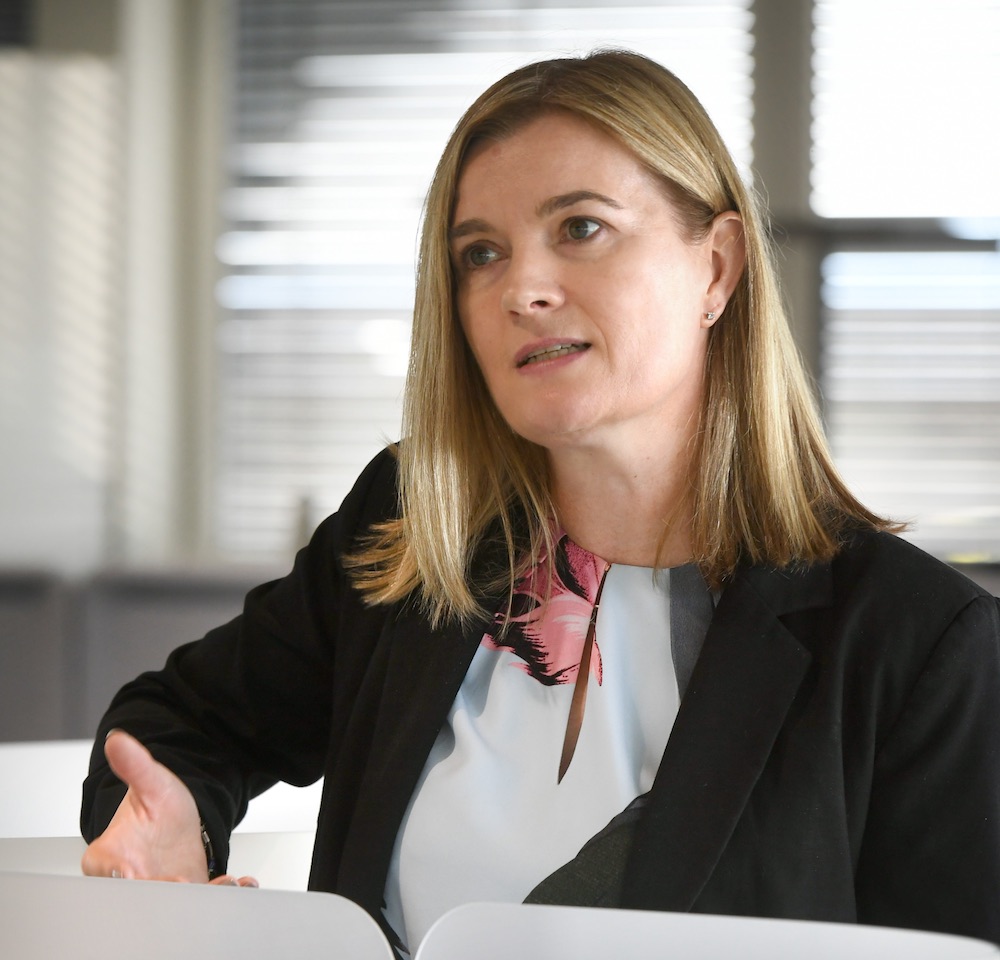Newsletter Signup - Under Article / In Page
"*" indicates required fields
Cell and gene therapy is booming amid the ongoing pandemic, and this is driving up demand for synthetic DNA products, often produced and delivered by CDMOs.
Karen Fallen started her career at Celltech Biologics in the UK, which was acquired in 1996 by Swiss giant Lonza, a world leader in the pharmaceutical manufacturing space. She stayed there for 31 years before moving on to the role of CEO at Touchlight DNA Services in October.
“The market in DNA and nucleic acid medicine is just exploding. Cell and gene therapies have the biggest growth of all the biologics out there and DNA is the essential starting material,” Fallen told me.
For several years, UK-based company Touchlight Genetics has been producing a form of synthetic DNA, called doggyboneDNA, that is designed to simplify the manufacturing of DNA vaccines and gene therapy.
To meet the ever-increasing demand for its products, Touchlight Genetics created a contract development and manufacturing organization (CDMO) arm of the business called Touchlight DNA Services, which Fallen now leads.

Traditionally, the DNA necessary for these treatments has been produced by bacteria. Touchlight is developing a method to create this DNA enzymatically, which removes the need to include certain genes required by the bacteria and thus makes the final product simpler and safer.
“It’s really quick to actually produce the DNA, much faster than the bacterial methodology of doing it,” Fallen noted. “It’s also very scalable.”
DNA synthesis becomes essential
The increasing need for fast, cheap and accurate DNA synthesis in recent years has led a number of biotechs in Europe to try and meet the demand, such as DNAScript, Evonetix, Nuclera, and Camena Bioscience, among others.
The demand has further increased with the Covid-19 pandemic, since many of the companies developing vaccines or treatments for Covid-19 require DNA as a starting material. So do many tests to diagnose Covid-19 infections.
“There’s a lot of potential RNA and [DNA] vaccines out there,” Fallen said. “The demand for DNA was already outstripping supply, and that was just with cell and gene therapy demands. The Covid-19 impact has just accentuated that.”
While CDMOs are crucial to the drug development industry, they often don’t receive the same level of public and media attention as biotechs and big pharma. But Fallen thinks their importance is only increasing as cutting-edge treatments become commonplace, as many biotechs working on advanced therapies do not have the capacity for advanced manufacturing.
“I think that the CDMO industry over the last few years has really come into its own… At least 70% of the innovator molecules out there reside with biotechs that don’t always have the capability to develop or manufacture them,” Fallen told me.
“The supply chain is imperative. It’s all very well developing a molecule, but if you can’t manufacture it or deliver it, then you’re going to go nowhere.”
Leadership means helping others
Starting a new job as a CEO is a challenge for most people, but particularly so at the moment with the pandemic hanging over everyone and most people working completely remotely.
“I met all the people by Zoom, which isn’t often the easiest thing to do. But that gives you an idea of the culture of the company.”
Thanks to her experience running a business unit at Lonza, Fallen has learned a lot about how to be a good leader. “I’ve always found that people follow you because they want to, not because you’re in a position of power… You need to listen to people, see what motivates them, and then you can get people on board.”
“You’ve also got to make tough decisions quickly as well. You can’t have an endless amount of data to make decisions on, you’ve just got to go with it and have the confidence to do that.”
Fallen is a strong believer in supporting others. “I have become, surprisingly, even to myself, a role model. I spent a fair amount of time talking with some of the more junior people [at Lonza]… mentoring them and giving them my perspective on the world. I have shared what I’ve learned as I’ve been going along and given some advice on how to handle certain situations.”
Although she has been lucky in that respect, Fallen recognizes that diversity can be a problem in CDMOs, biotechs, and pharma companies, particularly at higher management levels.
“You’ve got to try and get rid of unconscious biases. I know a lot of companies are putting people into positions just to get the numbers up, but I’m not convinced that’s the right way of doing it. I think you just have to have an open mind and give people the opportunity. From my experience, that is mostly successful.”
“You’ve got to take a risk with people sometimes. I’ve been in that position of people taking risks with me. You’ve got to then support them, you’ve got to develop them in the right way, don’t just talk them into something. But if you do that, I think you get what you want out of people.”
Cover illustration by Elena Resko, picture provided by Touchlight DNA Services.






